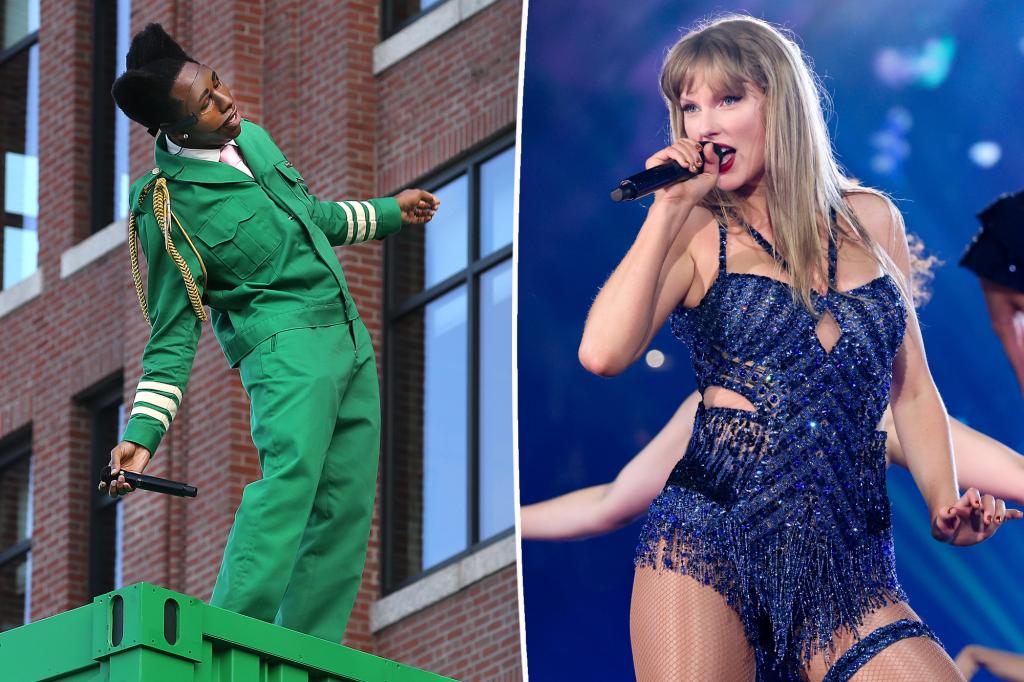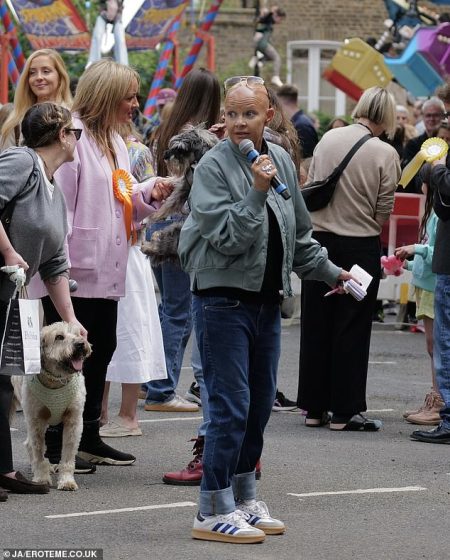Tyler, the Creator sparked controversy after labeling Taylor Swift fans as “racist” for calling out his controversial lyrics about the pop superstar in his older tracks. While performing at a concert in Boston, the rapper brushed off criticism from Swift’s fans, known as Swifties, and urged them to listen to his past work where he used explicit language and demeaning references to women. He specifically mentioned his track “Tron Cat” from his 2011 album “Goblin,” where he bragged about sexual encounters without consent.
In addition to “Tron Cat,” Tyler’s “Goblin” album contained lyrics that referenced Swift in a derogatory manner. The song “Fish” includes explicit language about sexual encounters with Swift, while “Nightmare” features a line comparing the likelihood of his father expressing love to Tyler to Swift having sex with him. As Tyler rose to the top spot on the Global Spotify Top Artists chart, surpassing Swift, the criticism from her fans intensified, pointing out the problematic nature of his lyrics and questioning his success in the industry.
Swift’s fans called out Tyler for his sexist and offensive lyrics, accusing him of using misogyny and inappropriate content to gain fame. They highlighted the contrast in the way Swift is portrayed in the media compared to Tyler’s controversial lyrics, questioning why he is given a pass for using offensive language and humor in his music. Despite the backlash from Swifties, Tyler remained defiant during his concert, showing no remorse for his past lyrics and continuing to dismiss criticism from those who called him out for his problematic content.
The ongoing feud between Tyler, the Creator, and Taylor Swift fans escalated as she was displaced from the top spot on the Global Spotify Top Artists chart. Some fans criticized Tyler’s lack of accountability for his offensive lyrics, referring to him as a “disgusting creature” and expressing concern over his attitude towards criticism. The controversy surrounding Tyler’s past lyrics and the backlash from Swifties has sparked discussions about misogyny in the music industry and the double standards that exist for male and female artists when it comes to the content of their music.
As the situation continues to evolve, with Swift’s fans expressing their disappointment and frustration with Tyler’s dismissive response to criticism, it remains to be seen how both parties will address the controversy. Swift and Tyler have not yet commented on the situation publicly, but the debate over the content of Tyler’s music and his attitude towards criticism from fans of other artists has sparked a broader conversation about accountability and representation in the music industry. It remains to be seen how this controversy will impact Tyler’s career and influence discussions about sexism and racism within the hip-hop community and the music industry at large.















